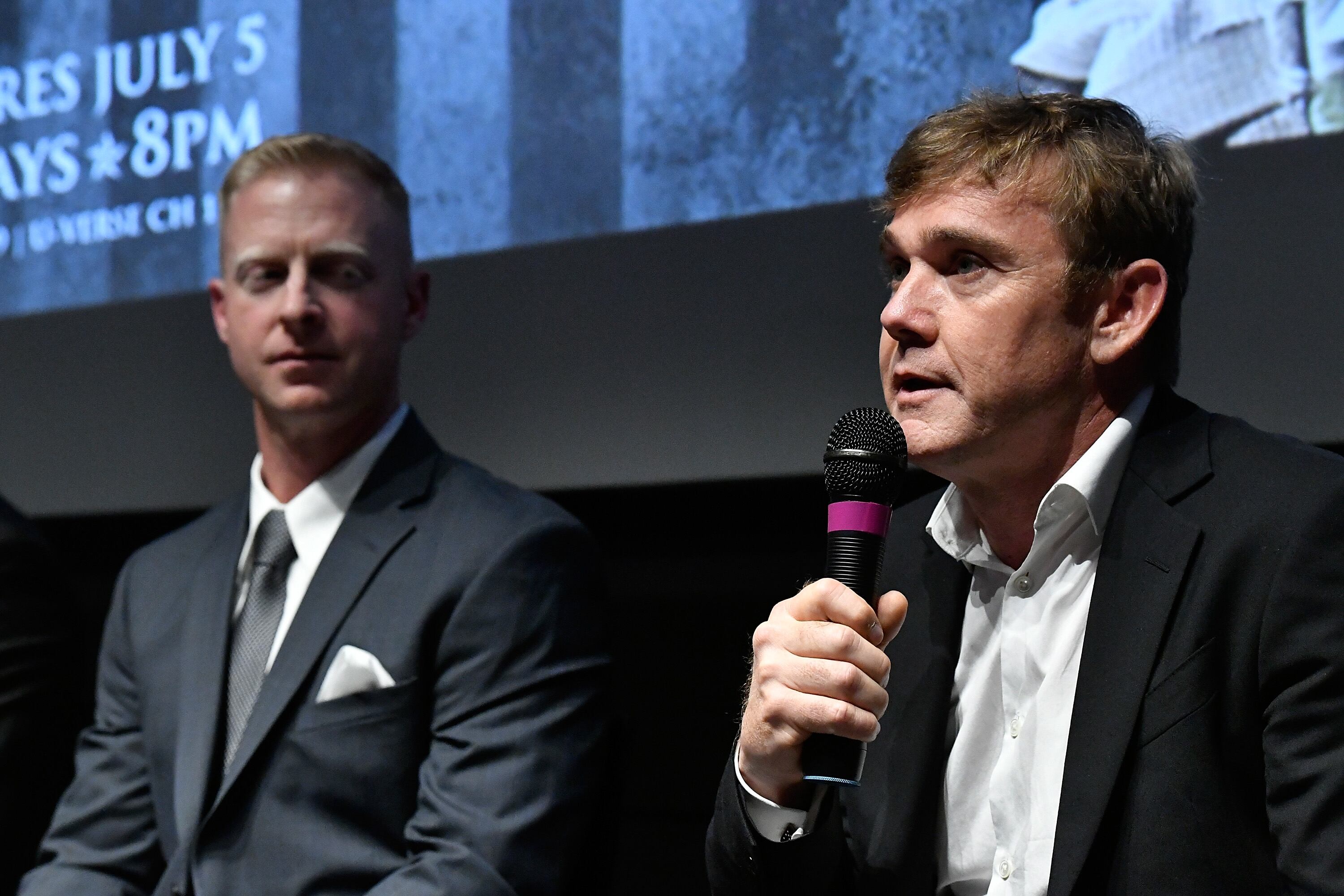On his 100-plus-day trip to Afghanistan in 2014, actor/director/producer Ricky Schroder wanted multiple perspectives of the American military's involvement, chronicling everything from high-level meetings to drone strikes to manhunts for Taliban leaders.
This time around, with his second six-episode series about the war in Afghanistan, Schroder sought a new angle — one stemming straight from the helmet-mounted cameras worn by soldiers in the thick of the fight.
"My Fighting Season," which premieres July 5, combines this footage with interviews from the soldiers under those helmets to tell a series of first-person stories from the combat zone. Schroder said he got the idea during his 2014 embed, when he gave some small cameras to soldiers to capture missions that didn't have room for his documentary crew to tag along.
"I would get back the footage after a mission," Schroder said, "and there were perspectives that I never would have been able to achieve as a cameraman. ... [I thought,] What about making the next version of 'The Fighting Season' from the soldiers' perspective only? I mentioned that to a lot of people, and they thought it was a good idea."
A rough draft of the first episode features soldiers trading fire with insurgents in June 2012 in "the Playground," a Taliban-infested patch of land north of the town of Moqor in Afghanistan's Ghazni province. Helmet cams capture the mostly barren landscape bathed in near-blinding sunlight ... then begin to move suddenly as soldiers spot a potential threat in the distance.
Viewers see soldiers hit the ground, then seek cover behind berms and walls. They feel first-person agony as a soldier looks back to see a teammate lying motionless after an engagement. Seconds later, they see what that down-, but-not-out, soldier sees as he fights through exhaustion, stumbling toward cover and the safety of his unit.
- "Anyone shows hostile intent, you f---king kill them," one soldiers says prior to the engagement.
- "F---kers are firing mortars," says another, announcing a new insurgent weapon in play.
- "Tell the f--king gunner to face … f--king, get rear f--king security," says a staff sergeant outlining plans to secure his position around a disabled vehicle. "Tell those f--ing guys to f--king stop."
"We wanted to give it the appropriate raw-ness without offending anybody over the top," said executive producer Jim Rabon, a retired Army colonel who also worked with Schroder on "The Fighting Season." "You need the appropriate amount so that the audience understands that this isn't the shopping mall."

Ricky Schroder speaks to the audience during a special June 22 screening of "My Fighting Season" at the Newseum in Washington D.C. Looking on is Sgt. 1st Class Alan Sutton, one of the soldiers involved in a 2012 engagement in Afghanistan featured in the premiere episode.
Photo Credit: Larry French/Getty Images for DirecTV
"It was challenging for them to recall the specifics of a certain moment, or a certain day, unless we showed them the footage," he said. "And then, every one of them would remember it like it was yesterday."
Army public affairs representatives sat in on the interviews with soldiers still in uniform. They also reviewed rough cuts of each episode for operational security, legal and other concerns, such as whether the combat action revealed any tactics, techniques or procedures better left in-house.
"The difference between this project and other projects is we were looking at [the footage] after the fact," said Lt. Col. Timothy Hyde with Office of Public Affairs-West, the Army's liaison to the entertainment industry. "That's the only piece of it we really had."
Schroder, who'd worked with Army officials to clear footage for the first "Fighting Season" (now available for purchase online) and alongside them to produce the "Starting Strong" recruitment series, praised the Army's willingness to let him tell the story how he wanted to tell it.
"They don't try to say, 'Hey, cut that language out, Ricky,' or, 'Hey, we don't want to see that guy dancing in a grass skirt,' you know?" he said. "They understand that soldiers are soldiers."
And yes, after the soldiers in the first platoon return from their firefight, one of the men dresses up in a grass skirt. Complete with coconut bra.
Interested viewers can see more on Tuesday nights on DirecTV's Audience Network and on AT&T U-verse cable (Channel 1114). Have footage of your own that might make the cut for an upcoming season? Reach out to the producers for more information, or learn more on the show's official website.
"I believe that this show, these stories, can be told for years to come," Schroder said. "Kind of like 'Cops' looked at law enforcement from a law enforcement perspective and it became an institution, as far as longevity. … I believe soldiers have stories to tell like law enforcement does, and we can tell these stories for a long time if soldiers want to participate."
Kevin Lilley is the features editor of Military Times.





